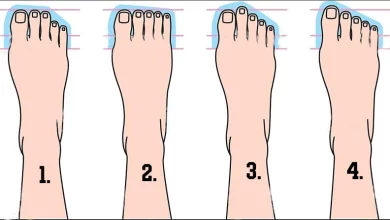If you are feeling fatigued and lethargic, it might be because of your dehydrated body. Lack of water can be the reason for low blood pressure and inadequate oxygen supply throughout the body, including the brain. Lack of oxygen causes sleepiness, fatigue and a lethargic feeling.
Additionally, when you are dehydrated, your body has to work much too hard to ensure proper blood circulation, transporting nutrients and even breathing. Expending extra energy makes you tired faster than usual.
One of the easiest ways to stay alert and energized is staying hydrated, so keep your water bottle handy.
Joint and Muscle Pain
A vital component of healthy joints and cartilage is water. In fact, they consist of about 80 percent water. If your body lacks water, then your bones start grinding against each other, and causing pain in the joints.
If your body is well hydrated, then your joints can handle sudden movements, such as running, jumping or falling awkwardly, without any pain.
Depletion of fluids through perspiration can bring about muscles to contract, leading to cramps. A 2008 study published in the Journal of Applied Physiology shows that body water status is an essential consideration in modulating the hormonal and metabolic responses to resistance exercise.
Scaly, dry skin and lips
Another indication that your body lacks water is dry skin that lacks elasticity. The skin requires a good amount of water to remain in good condition because it is the body’s largest organ.
A low water level is the reason for less sweating, which means the body is not able to wash away excess dirt and oil accumulated on the skin throughout the day. Furthermore, because water aids in flushing toxins from the body, dehydration increases the risk of acne, eczema and psoriasis.
Another indication of dehydration is dry and chapped lips.
Hence, along with moisturizing your skin with a good moisturizer, by drinking an adequate amount of water you have to make sure you are hydrating your skin from the inside out.
Accelerated heartbeat
Dehydration has a direct influence on heart rate and performance. Making the blood more viscous dehydration causes a decrease in plasma volume.
According to a 2014 study published in the Journal of Strength & Conditioning Research dehydration negatively impacts performance.
It was found that the heart rate changes in an average of three beats per minute for every 1 percent change in body weight resulting from dehydration.
Furthermore, dehydration causes modifications in electrolytes present in your body, leading to low blood pressure. Heart palpitations become faster because of extra stress on your body. This can be frightening and cause anxiety and panic. Try sipping water slowly if you feel your heart beating faster. Consult your doctor immediately if the problem persists.
Tips to prevent dehydration:
You should drink plenty of water and other fluids every day. The amount of water you need to drink usually depends on a number of factors, such as the climate in which you live, how physically active you are, and your overall health.
Start your day with a large glass of water (room temperature) and drink one full glass of water before every meal.
When you are busy and often forget to drink water, you can set a reminder to drink a glass of water a few times a day.
Carry your own water bottle, no matter where you are going.
Along with water, start including water-rich fruits and vegetables in your diet.
Try not to drink beverages that can cause dehydration, such as alcohol, energy drinks and others that contain caffeine.
If you are suffering from a fever, vomiting or diarrhea, increase your fluid intake to prevent severe dehydration.
You should consult your doctor immediately if you are having symptoms such as extreme thirst, dizziness, not passing urine for more than eight hours, and a rapid or weak pulse.



